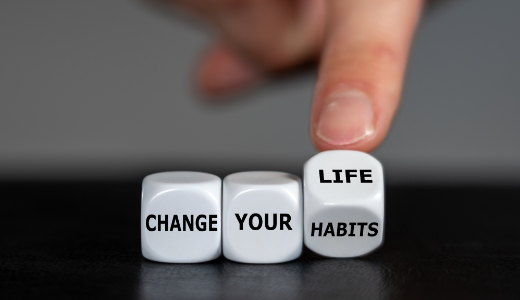
When we want to be successful, our habits are very important. Our lives are shaped by these seemingly unimportant habits. They affect how productive we are and how happy and satisfied we are. But what happens when our habits get in the way of our success? Then it’s time to change our habits.
Understanding the Habit Loop
To change our habits in a meaningful way, we need to understand how they are made and maintained. Charles Duhigg, who wrote “The Power of Habit,” says that habits are made up of three parts: a cue, a pattern, and a reward. Figuring out this loop gives us a plan for how to start making changes.
- Cue: This is the trigger that prompts a habitual behavior. It could be a specific time of day, an emotional state, or a particular environment.
- Routine: The routine is the behavior itself—the action or series of actions that we automatically perform in response to the cue.
- Reward: This is the gratification or benefit we derive from completing the routine. It reinforces the habit loop, making it more likely to recur in the future.
Identifying Unproductive Habits
Being self-aware is the first step to changing your habits. We must figure out which habits help us and which ones hinder us. To do this, we have to be honest and ready to face the truth about our behavior.
Ask yourself the following questions:
- What habits help me be more productive, stay healthy, and be happy?
- What habits keep me from reaching my goals and dreams?
- What makes you do these useless things, and what do they give you in return?
Implementing Habit Alteration Strategies
Once we know which habits we want to change, there are a number of things we can do to make it easier to do so:
- Replace, don’t get rid of: Focus on changing a bad habit with a better one instead of trying to get rid of the habit completely. When you want to cut down on sugary snacks, for example, try eating healthier foods like nuts or fruits instead.
- Change the Cue: Changing the cue can break the habit loop and make it easier to change. For instance, if worry makes you do things that aren’t helpful, like putting things off, try doing things that calm you down, like deep breathing or mindfulness meditation.
- Change the Reward: People often stick to habits because they make them feel good. We can make the habit less appealing by figuring out what the real prize is and coming up with other ways to get it. If scrolling through social media helps you feel connected, you might want to make plans to see friends in person or join a neighborhood group.
- Use habit stacking: combining a behavior you want to change with a habit you already have can make it more likely that you will accept it. For example, if you want to make regular exercise a part of your life, promise yourself that you will do a short workout right after you brush your teeth in the morning.
- Be consistent and patient. Changing habits takes time and requires that you be persistent and patient. Enjoy the little wins along the way, and know that setbacks are a normal part of the trip. Don’t give up on your goals, even if you have short-term failures.
Achieve More
As we work to reach our goals, we need to be flexible and willing to change our habits along the way. By learning how to change our habits, we give ourselves the power to shape our lives in a way that fits our deepest hopes and wishes. Let’s welcome change, form habits that will help us, and make plans for a future full of success and happiness.
See how a Modern Observer Group coach can help you create better habits. Schedule a call here or contact us at the information below. Modern Observer Group programs are based on the Businetiks system as detailed in the book, “The Businetiks Way.”

